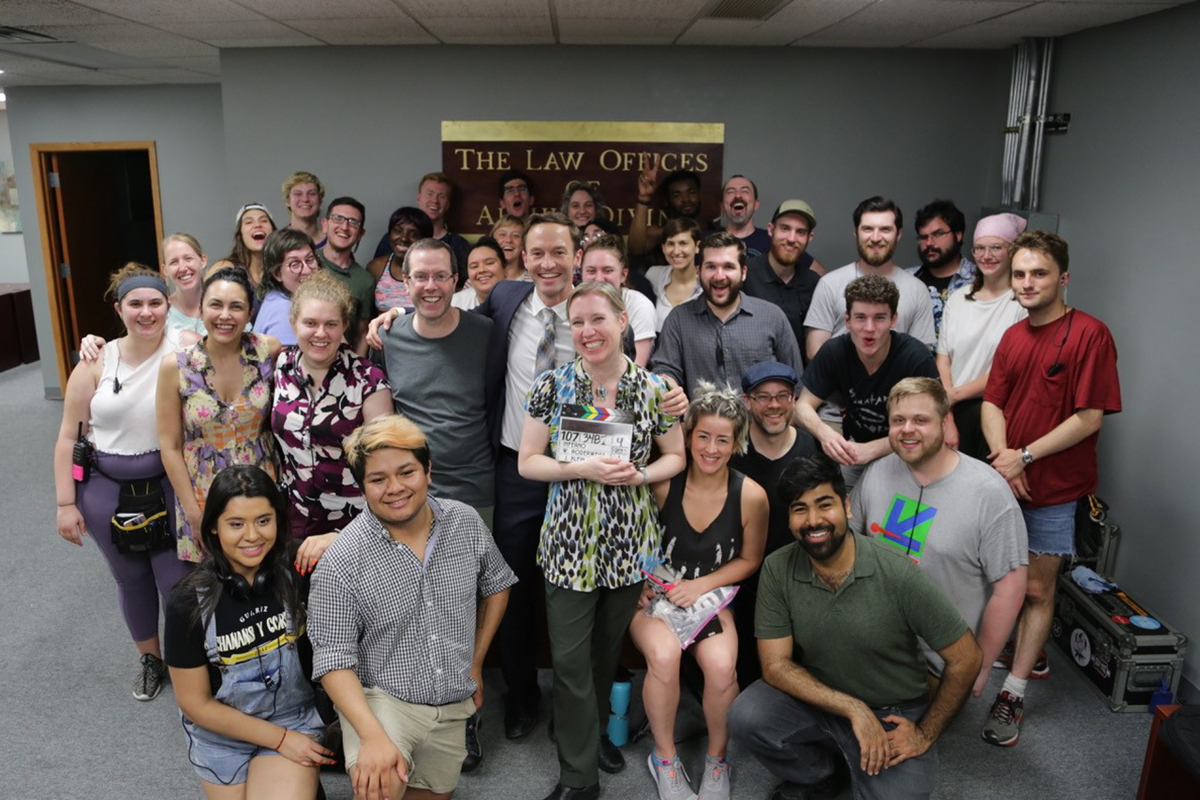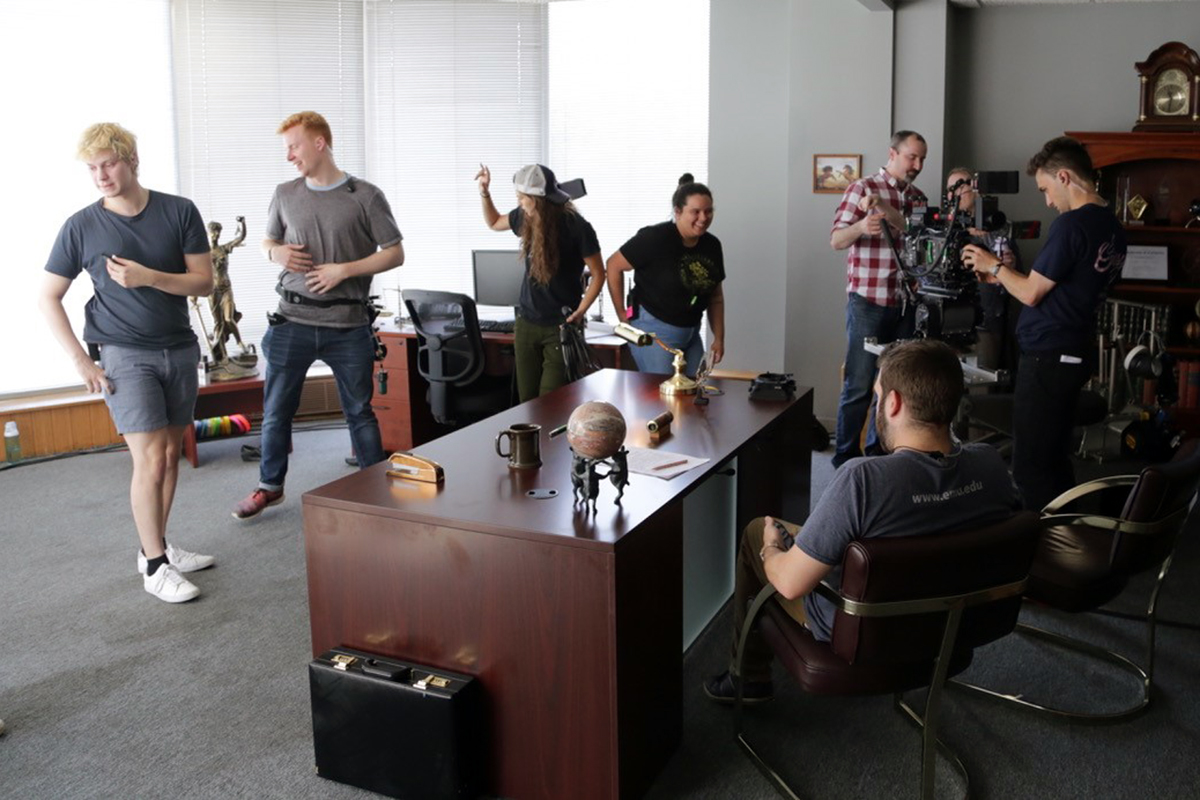 The cast and crew of "Inferno" pose on set during the filming of the T.V. pilot. (Image courtesy of Wendy Roderweiss)
The cast and crew of "Inferno" pose on set during the filming of the T.V. pilot. (Image courtesy of Wendy Roderweiss)If you are into dark comedies, Wendy Roderweiss has the TV show for you. A faculty member in the School of Cinematic Arts, Roderweiss wrote and produced the pilot for “Inferno” with a crew of DePaul students in the spring of 2019. Now the episode is available to watch via streaming on
The Roku Channel. In this Q&A, Roderweiss gives a behind-the-scenes look at the Project Bluelight course that empowered 26 DePaul students to shape the project and gain professional experience to launch their careers.
What's "Inferno" about and what inspired it?
In the show, a mistake leaves an altruistic law school grad desperate for a job and he interviews at a firm of morally depraved divorce lawyers. Ultimately, he must decide if he’s willing to sacrifice every principle he lives by in order to save his future.
I co-wrote the pilot with my partner who worked as a paralegal at a law firm in Los Angeles. He would come home super depressed and tell me about his totally absurd days. In the end we always ended up laughing and knew this would make for a great TV show. There is a deep well of material about divorce and we both love the black comedy genre, which is best suited to this kind of show.
Project Bluelight is DePaul’s professional motion picture production company, and you created “Inferno” in a 2019 class. How did you balance providing a professional experience and making space for learning?
A typical big-set Bluelight has professionals in the department head roles and students in crew positions. We also had professional actors. I made sure my pros were both the best at their respective jobs and excellent teachers. We made it clear this was going to be a learning set and things may go a little slower and, in some cases, a little bumpier than professionals might be used to.
A set is pretty chaotic and you are always battling with time. To build in space for learning, we gave each student a small pocket notebook so they could jot down questions throughout the day. During an extended “class” lunch, students could ask anything about lighting, camera, production design or how and why I gave my direction. We also had presentations from professional crew who are in the union about set protocols. Actors joined us to talk about their process, using specific examples from a scene shot earlier in the day.
 A crew of School of Cinematic Arts students sets up a scene during the filming of "Inferno." (Image courtesy of Wendy Roderweiss)How did students make creative decisions and take on professional responsibilities with this project?
A crew of School of Cinematic Arts students sets up a scene during the filming of "Inferno." (Image courtesy of Wendy Roderweiss)How did students make creative decisions and take on professional responsibilities with this project? Before we began filming, 22 of the students took a preproduction class. We did camera and lens tests and voted on which camera we liked best. It was important to me that everyone felt this was not just a work and learning experience, but that they also felt like they had investment and ownership of the final project. We also made some unconventional choices to further the learning experience. We rotated people within their roles in the camera department, then flipped our camera and grip, and electric departments for the second week of shooting so students could maximize their experience.
This certainly slowed things down, but I was confident in the department heads and their ability to teach the students what they needed to know.
Many of the students had never been on a set before this Bluelight. After this experience they were able to join other students sets. Others used the experience to get jobs in L.A. and Chicago. These Bluelights give the students professional experience in a supportive environment, and frankly there are no other film schools doing what we do at DePaul.
Congrats on the pilot landing on Roku. What does it mean to you and your students that this project has found this audience?
It’s super exciting. Having distribution on a streamer like The Roku Channel gives students something even more solid for their resumes. It also is great for DePaul and the School of Cinematic Arts. We made an indie pilot for a fraction of what most TV show pilots cost. Having it on Roku Channel alongside other shows like “House” and “This is Us” raises the profile of our program on a national level.
The next step is spreading the word — Roku is launching an original content wing and if we can get enough people to watch the pilot, they may develop the rest of the season.
So everyone who is reading this— watch it!